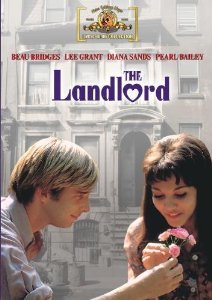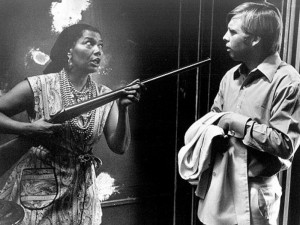Archive | City Matters
Do the Right Thing
 Pictured here: my seasonal subway wince. I love New York as much as anyone I know, but the city is not only hot but hot-headed in the dog days of summer; when temperatures and humidity climb, everyone’s manners go straight out the window. (Hygiene too; witness the pervasive eau de rotting lemons and dashed dreams.) This is a shame, for excellent NYC etiquette is required to ensure we don’t kill each other as we walk down the street. Me, I’m hightailing it to my hometown of Boston. Even with its genetically engineered surliness and crap driving Massholia is preferable this time of year. I think it has something to do with being located right on the coast. The Atlantic Ocean washes away all delusions of grandeur. So get in touch if you’re going to be around. I’m even considering doing some quickie, cheapo tarot readings a la the ladies who crowd Union Square except not so scary and bullying. Like I said: etiquette is key.
Pictured here: my seasonal subway wince. I love New York as much as anyone I know, but the city is not only hot but hot-headed in the dog days of summer; when temperatures and humidity climb, everyone’s manners go straight out the window. (Hygiene too; witness the pervasive eau de rotting lemons and dashed dreams.) This is a shame, for excellent NYC etiquette is required to ensure we don’t kill each other as we walk down the street. Me, I’m hightailing it to my hometown of Boston. Even with its genetically engineered surliness and crap driving Massholia is preferable this time of year. I think it has something to do with being located right on the coast. The Atlantic Ocean washes away all delusions of grandeur. So get in touch if you’re going to be around. I’m even considering doing some quickie, cheapo tarot readings a la the ladies who crowd Union Square except not so scary and bullying. Like I said: etiquette is key.
Hilton Als on ‘Voyage Au Congo’
 It’s not an overstatement to say Hilton Als is one of the most important cultural critics working today. The theater reviewer for The New Yorker, he also is the author of the essay collections The Women (1996) and White Girls (2013), both highly original takes on the intersection of class, gender, race, and sexuality.
It’s not an overstatement to say Hilton Als is one of the most important cultural critics working today. The theater reviewer for The New Yorker, he also is the author of the essay collections The Women (1996) and White Girls (2013), both highly original takes on the intersection of class, gender, race, and sexuality.
At Brooklyn’s packed Light Industry venue on July 16, he discussed author André Gide’s “Voyage au Congo,” a 1927 silent documentary that examines African “natives” with an appallingly detached curiosity. Als called it out with his characteristic mix of compassion and candor.
“This is a messed-up film,” he began, clad in a seersucker blazer and white bucks that put the resident hipsters to shame. “But it taught me not to look away.” He went on to discuss the abundant nudity in the film: “Gide had a lot of trouble with the black female body,” he said, and acknowledged the many other white male authors who had the same trouble, including poet Arthur Rimbaud. “Even educated people can be rude and ridiculous,” he said, and discussed recent instances in which colleagues and students had made nasty comments about his own physicality. (Als sometimes refers to himself as a “negress.”) “Perhaps this film would best be shown as a double feature with something by [black folksinger] Carole Walker. Perhaps cinema is not the best way to examine how black bodies have been treated.”
But he went on to say it is important that films like “Voyage au Congo” continue to be watched, so long as films made by people “in the margins” are watched as well. “We need to take in this material and change how it fits into our story and our society. As the world changes, this is our right and our responsibility.”
The applause from the usually too-cool-for-school audience was deafening.


